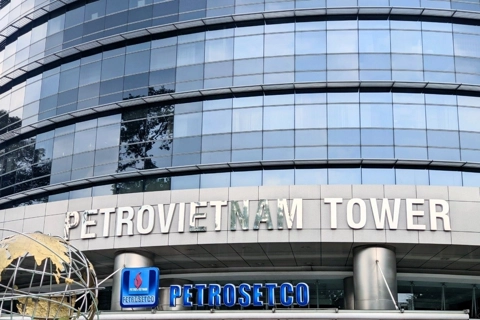Econ
Vietnam gov't urges faster SOE privatization
Jul 09, 2019 / 12:40 PM
As of present, only 35 out of 127 SOEs subject to privatization have completed the process.
Vietnam Deputy Prime Minister Vuong Dinh Hue has urged government agencies to speed up the privatization process of state owned enterprises (SOEs), which has only completed 27.5% of the target for the 2016 – 2020 period.
As of present, only 35 out of 127 SOEs subject to privatization have completed the process, while the number of SOEs should have completed the privatization process in Hanoi and Ho Chi Minh City are 13 and 36, respectively, Hue said in a meeting on July 8.
Meanwhile, state capital divestment in SOEs has also been slow compared to the targets set in Decision No.1233 of the Prime Minister, requiring the completion of divestment in 405 SOEs in the 2016 – 2020 period, in which only 88 SOEs have been divested so far.
Hue also pointed to the issue of state firms unwilling to go public and delay in transferring state capital ownership rights in SOEs from government agencies to the State Capital Investment Corporation (SCIC), the government’s investment arm.
Hue expressed concern over the target of having one million enterprises by 2020, which is unlikely to reach as the current number is 737,000, given the lack of efficient measures to encourage household businesses to become formalized.
Hue requested government agencies to complete drafting regulation regarding the privatization and divestment process from now on until 2019, ensuring a transparent and feasible process.
Nguyen Hong Long, deputy head of the Steering Committee for Enterprise Innovation and Development, informed six SOEs have raised VND562.7 trillion (US$24.2 billion) through IPOs in the first six months of 2019.
Since 2016, a total of 162 SOEs have completed the privatization process, accounting for 27.5% of the target for the 2016 – 2020 period. Total state capital in those firms were estimated at VND205.43 trillion (US$8.83 billion), equivalent to 108% of such amount in companies privatized in the 2011 – 2015 period at VND189.5 trillion (US$8.15 billion).
Additionally, six SOEs have seen their privatization schemes approved with total value of VND680.86 billion (US$30 million), of which state capital amounted to VND615.29 billion (US$26.47 million).
Following the privatization scheme of these firms, the combined charter capital is VND334.66 billion (US$14.4 million).
During the six-month period, government agencies have divested state capital in 30 SOEs for proceeds of VND4.93 trillion (US$212.13 million) from VND2.76 trillion (US$118.77 million) in book value.
This resulted in a total of VND9.11 trillion (US$392.06 million) in divestment from 88 SOEs since 2016 with book value of VND4.8 trillion (US$206.57 million).
According to Long, total returns from divestment and privatization process in the January – June period of 2019 reached VND5.5 trillion (US$236.7 million), accumulating a total of VND218.25 trillion (US$9.4 billion) since 2016, 2.8 times total returns from the similar process in the 2011 – 2015 period with VND78 trillion (US$3.35 billion).
In the January – June period, Long said Vietnam has a total of 66,958 newly licensed enterprises, up 3.8% year-on-year with registered capital of VND860.19 trillion (US$37 billion), up 32.5%.
This was the best six-month performance in terms of the number of enterprises and the capital amount in the 2015 – 2019 period, Long added.
Average registered capital per newly licensed enterprise reached VND12.8 billion (US$550,000), up 27.7% year-on-year. If including VND1,310.3 trillion (US$56.24 billion) of additional capital pumped by operational enterprises, the total registered capital added to the economy in the first six months of 2019 was VND2,170.5 trillion (US$93.16 billion).

Overview of the meeting. Source: VGP.
|
Meanwhile, state capital divestment in SOEs has also been slow compared to the targets set in Decision No.1233 of the Prime Minister, requiring the completion of divestment in 405 SOEs in the 2016 – 2020 period, in which only 88 SOEs have been divested so far.
Hue also pointed to the issue of state firms unwilling to go public and delay in transferring state capital ownership rights in SOEs from government agencies to the State Capital Investment Corporation (SCIC), the government’s investment arm.
Hue expressed concern over the target of having one million enterprises by 2020, which is unlikely to reach as the current number is 737,000, given the lack of efficient measures to encourage household businesses to become formalized.
Hue requested government agencies to complete drafting regulation regarding the privatization and divestment process from now on until 2019, ensuring a transparent and feasible process.
Nguyen Hong Long, deputy head of the Steering Committee for Enterprise Innovation and Development, informed six SOEs have raised VND562.7 trillion (US$24.2 billion) through IPOs in the first six months of 2019.
Since 2016, a total of 162 SOEs have completed the privatization process, accounting for 27.5% of the target for the 2016 – 2020 period. Total state capital in those firms were estimated at VND205.43 trillion (US$8.83 billion), equivalent to 108% of such amount in companies privatized in the 2011 – 2015 period at VND189.5 trillion (US$8.15 billion).
Additionally, six SOEs have seen their privatization schemes approved with total value of VND680.86 billion (US$30 million), of which state capital amounted to VND615.29 billion (US$26.47 million).
Following the privatization scheme of these firms, the combined charter capital is VND334.66 billion (US$14.4 million).
During the six-month period, government agencies have divested state capital in 30 SOEs for proceeds of VND4.93 trillion (US$212.13 million) from VND2.76 trillion (US$118.77 million) in book value.
This resulted in a total of VND9.11 trillion (US$392.06 million) in divestment from 88 SOEs since 2016 with book value of VND4.8 trillion (US$206.57 million).
According to Long, total returns from divestment and privatization process in the January – June period of 2019 reached VND5.5 trillion (US$236.7 million), accumulating a total of VND218.25 trillion (US$9.4 billion) since 2016, 2.8 times total returns from the similar process in the 2011 – 2015 period with VND78 trillion (US$3.35 billion).
In the January – June period, Long said Vietnam has a total of 66,958 newly licensed enterprises, up 3.8% year-on-year with registered capital of VND860.19 trillion (US$37 billion), up 32.5%.
This was the best six-month performance in terms of the number of enterprises and the capital amount in the 2015 – 2019 period, Long added.
Average registered capital per newly licensed enterprise reached VND12.8 billion (US$550,000), up 27.7% year-on-year. If including VND1,310.3 trillion (US$56.24 billion) of additional capital pumped by operational enterprises, the total registered capital added to the economy in the first six months of 2019 was VND2,170.5 trillion (US$93.16 billion).









